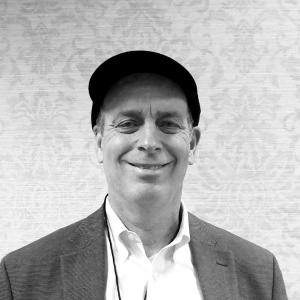Roland Lewis

Collecting Stories at the National Working Waterfronts and Waterways Symposium 2018
Collecting Stories at the National Working Waterfronts and Waterways Symposium 2018 is a project of Maine Sea Grant, College of the Atlantic, the Island Institute, and the National Working Waterfront Network.
National Capital Contracting
Roland Lewis, the president and CEO of the Waterfront Alliance, is a prominent figure in urban planning and environmental advocacy, particularly in the context of New York City's waterfronts. Lewis has dedicated his career to the revitalization and sustainable development of the city's coastal areas. His expertise encompasses a range of issues from urban design to policy reform, with a focus on creating resilient and accessible waterfronts for both economic and recreational purposes. Prior to his tenure at the Waterfront Alliance, Lewis served in various capacities related to urban development and environmental law, which provided him with a deep understanding of the complexities involved in managing urban coastal zones. His educational background includes degrees in both law and urban studies, which have equipped him with the tools to navigate the legal, social, and environmental challenges that waterfront communities face. Lewis is known for his collaborative approach, working with government agencies, community organizations, and private stakeholders to foster sustainable waterfront development.
Scope and Content Note
The interview with Roland Lewis offers an in-depth exploration of the multifaceted role of New York City's working waterfront. Roland talks about how New York City is a critical waterfront for the maritime ecosystem as the largest port on the eastern seaboard. He discusses the impacts of opening the Erie Canal, the wind turbines off the coast of New York, and issues of zoning of waterfront and maritime facilities. He highlights the successes of his work communicating between waterfront-based activities and the importance of having political leaders engaged with the working waterfront. Lewis discusses the historical significance of the waterfront to the community, highlighting its evolution and the economic and cultural impact it has had over the years. He addresses the contemporary challenges that the waterfront faces, such as sea level rise and climate change, and the implications these issues have for the future of coastal areas. Lewis also shares insights into recent successes in protecting and promoting the waterfront, emphasizing the collaborative efforts that have led to these achievements. He underscores the necessity of support from entities like the National Working Waterfront Network and the importance of storytelling in raising awareness and appreciation for the waterfront. The interview delves into the need for comprehensive data and political engagement to effectively confront and manage the challenges presented to the working waterfront. Lewis articulates his vision for the waterfront's future, advocating for it to be recognized and cherished as an integral part of America's landscape and heritage. The content of the interview reflects Lewis's commitment to the working waterfront and his strategic approach to ensuring its sustainability and legacy.
Please Note: The oral histories in this collection are protected by copyright and have been created for educational, research and personal use as described by the Fair Use Doctrine in the U.S. Copyright law. Please reach out Voices@noaa.gov to let us know how these interviews are being used in your research, project, exhibit, etc. The Voices staff can help provide other useful resources related to your inquiry.
The NOAA mission is to understand and predict changes in climate, weather, oceans, and coasts, to share that knowledge and information with others, and to conserve and manage coastal and marine ecosystems and resources. The Voices Oral History Archives offers public access to a wide range of accounts, including historical materials that are products of their particular times, and may contain offensive language or negative stereotypes.
Voices Oral History Archives does not verify the accuracy of materials submitted to us. The opinions expressed in the interviews are those of the interviewee only. The interviews here have been made available to the public only after the interviewer has confirmed that they have obtained consent.
